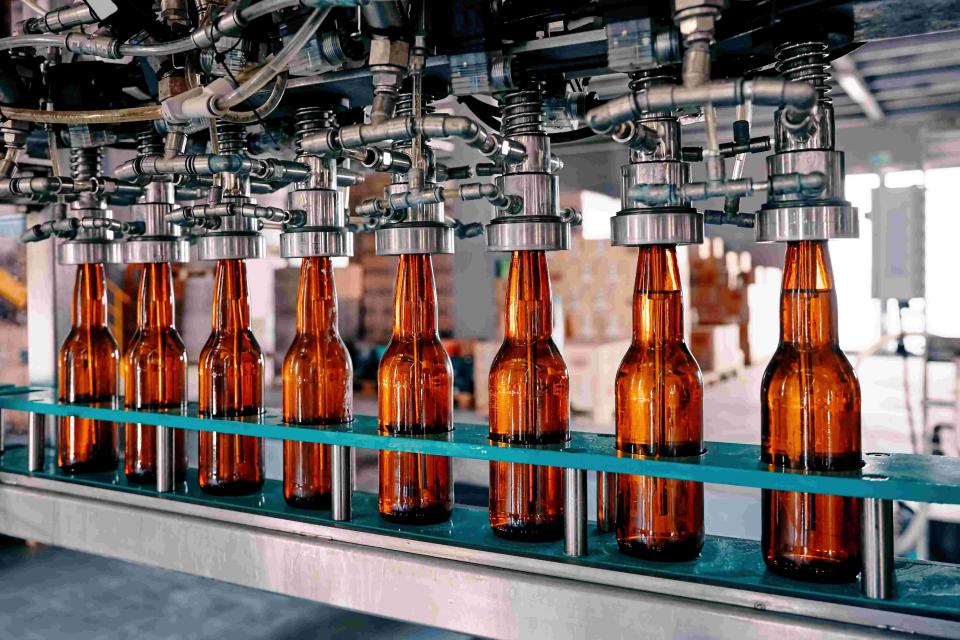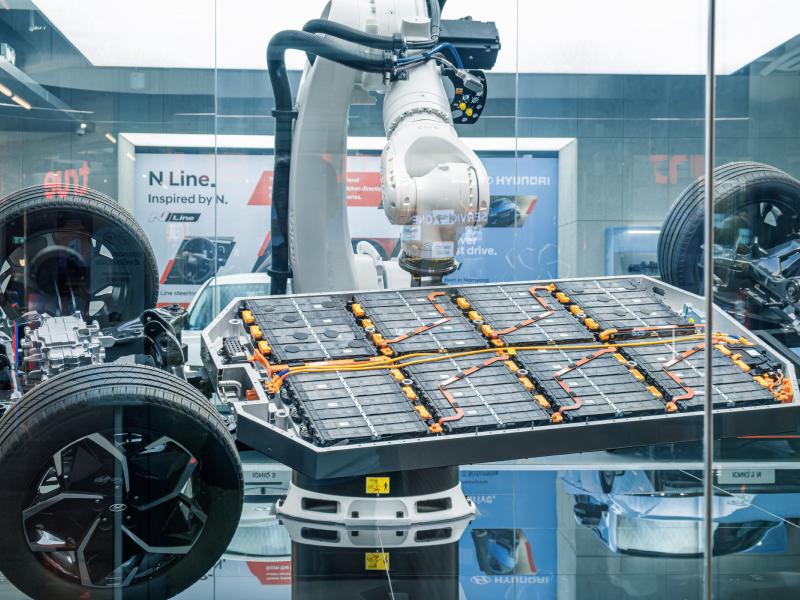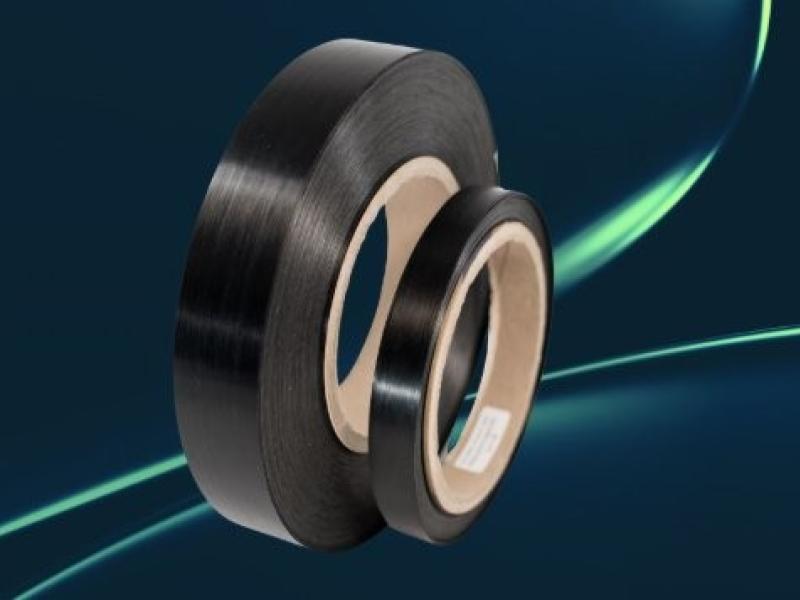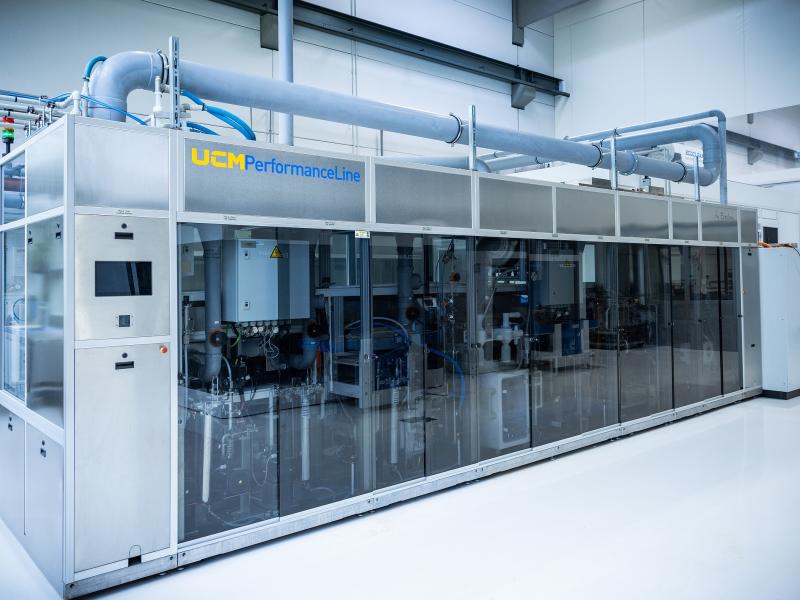Beverage manufacturing is tough on machinery. High humidity, frequent washdowns, exposure to cleaning chemicals and fluctuating temperatures can all accelerate wear. In this challenging environment, the reliability of production equipment is critical to keeping output high and downtime low. Here, Chris Johnson, managing director at SMB Bearings, argues that, when stakes are high, success depends on components that can deliver precision and durability under constant pressure — like speciality industrial bearings.
The food and drink industry is the UK’s biggest manufacturing sector by turnover, larger than the automotive and aerospace sectors combined. According to the Metal Packaging Manufacturers Association (MPMA), UK manufacturing plants produce and ship an estimated 9.7 billion beverage cans every year.
A modern beverage facility is a highly synchronised environment, where different processes must work in harmony to keep production flowing. From brewing and mixing ingredients to filling, sealing, labelling and packaging, every stage relies on high-speed, precision machinery.
What’s more, all of these stages are interconnected. That includes the conveyor system that transports bottles and cans, the capping and sealing heads that ensure product integrity, and the automated packaging units that prepare pallets for distribution. If one stage fails, then the entire line suffers.
What makes these lines particularly tough on components is the combination of speed, hygiene and consistency. Equipment must handle thousands of units per hour, while withstanding aggressive cleaning routines and also maintaining reliability. Components are expected to perform under constant load, without contaminating the product or compromising quality.
Where miniature bearings make the difference
It is within this demanding framework that precision miniature bearings prove their value. These compact components support the rotating parts inside conveyors, mixers, filling machines and packaging equipment.
By enabling smooth, controlled motion in space-constrained environments, they ensure that high-speed operations remain stable and predictable. Although bearings may be small, they must be precisely engineered to handle the exacting conditions of beverage production with the utmost reliability.
Aside from the challenges which stem from machine performance, plant environments can also degrade components. Beverage manufacturing facilities see moisture and cleaning agents used for frequent washdowns — all common causes of bearing wear.
That’s why it is essential to choose bearing materials that can withstand these environments. For instance, 440 grade stainless steel bearings provide resistance in mildly corrosive environments, while plastic ball bearings with acetal resin (POM-C) rings are excellent for corrosion resistance and rigidity — especially when they are paired with nylon (PA66) cages to offer a lightweight, non-conductive and economical option. Through these material design choices, plant equipment can endure moisture and repeated cleaning cycles without compromising performance.
Reducing maintenance and extending equipment life
For beverage manufacturers, maintenance is another critical consideration. Many miniature bearings are supplied in sealed condition. The grease-filled units require little to no relubrication during their entire service life. This design minimises upkeep, which is especially useful if the bearings are applied in hard-to-access areas of automated machinery. The outcome is longer bearing life and greater equipment reliability, reducing downtime that arises from manual servicing while reducing total operating costs.
Advanced sealing materials further improve durability. For example, in food-grade or chemically aggressive environments, conventional nitrile rubber often falls short. Instead, seals made from Viton®, Polytetrafluoroethylene (PTFE), or Polyether ether ketone (PEEK) better withstand harsh cleaning agents, elevated temperatures and corrosive atmosphere.
For production managers, the message is clear: bearing materials must be carefully selected to ensure that every stage of the line benefits from the most suitable component, balancing performance with lifecycle cost. For manufacturers, this investment is about more than simply avoiding downtime — it is about safeguarding quality, maximising throughput and maintaining a competitive edge. Chosen wisely, even the smallest components can make the biggest impact.
For more information about bearings for food and beverage applications, visit SMB Bearings’ website.
www: http://www.smbbearings.com/
e-mail: sales@smbbearings.com






